Politburo member and Prime Minister Pham Minh Chinh visited students and teachers of Hy Vong School - a boarding school for unfortunate children who lost their parents due to the COVID-19 pandemic_Photo: VNA
Ho Chi Minh's thoughts on human rights
Ho Chi Minh's thoughts on human rights were formed and deeply influenced by: 1- Humanism in the cultural and historical traditions of the Vietnamese people , where the values of humanity, love, justice and equality are respected. In particular, the thoughts on freedom and independence have been clearly expressed through the history of the Vietnamese people's struggle against oppression and invasion. Besides, through the process of leading the struggle for national independence, President Ho Chi Minh realized that human rights are not only an individual issue, but are also closely linked to the freedom, independence and territorial integrity of a nation. He deeply realized that only when a nation gains independence, can its people truly have basic rights; 2- Philosophy and ideology of Marxism-Leninism: President Ho Chi Minh inherited and creatively developed the ideology of Marxism-Leninism on human liberation and a society without oppression and exploitation; 3- Progressive ideological values of humanity : President Ho Chi Minh absorbed universal values of human rights from major revolutions in the world , especially from the Declaration of Independence of the United States, the Declaration of Human Rights and Citizens' Rights of France, other progressive ideas of humanity and he creatively applied these universal values to the practice of the Vietnamese revolution; 4- Life experience and practical activities: During his travels in many countries, President Ho Chi Minh witnessed the injustice and loss of freedom of many peoples, especially the Vietnamese people. This practical experience reinforced his thoughts on the necessity of liberating the working people and oppressed peoples in the world from oppression and injustice, fighting for equality and social justice, and protecting human rights. Therefore, Ho Chi Minh's thoughts on human rights are deeply humane, suitable to the circumstances and needs of the Vietnamese people in the process of fighting for independence and building the country, having contemporary and timeless values.
Since its founding, our Party has always affirmed that Marxism-Leninism and Ho Chi Minh Thought are the "compass" for all actions, which must be firmly grasped and creatively applied in practice in order to "contribute to the development of Marxism-Leninism and Ho Chi Minh Thought, constantly enriching the intellect, improving political mettle, moral qualities and organizational capacity to be able to solve problems posed by revolutionary practice" (1) . In particular, Ho Chi Minh's thought on human rights is a comprehensive and profound system of viewpoints on human liberation, ensuring and protecting human rights, on the people's right to mastery, improving the material and spiritual life of the people..., is the result of the creative application and development of Marxism-Leninism in the specific conditions of our country, inheriting and developing the fine traditional values of the nation, absorbing the quintessence of human culture. It can be said, President Ho Chi Minh creatively applied and developed the principles of independence, freedom, and happiness on the basis of combining the fine traditions of the Vietnamese people with the quintessence of human culture, such as the thought of leader VI Lenin on the right to national self-determination under the model of socialism in the Soviet era; the values of freedom, equality, and fraternity of the French bourgeois revolution (1789); the doctrine of "Three People" (national independence, civil rights, freedom, and people's livelihood) of Chinese patriot Sun Yat-sen; the universal value of human rights from the perspective of law and international practice, etc., creatively applied in accordance with the conditions and circumstances of Vietnam. In particular, the core content of Ho Chi Minh's thought on human rights is expressed in the following basic aspects:
Firstly , socialism is the best regime to guarantee human rights for everyone in Vietnam, that "if we advance to socialism, our people will become more prosperous every day, and our Fatherland will become more prosperous every day" (2) . The characteristics of socialism in our country are of a realistic social nature by the people, for the people; promoting the values of freedom, prosperity, and happiness; harmoniously combining personal and collective interests with social interests; satisfactorily resolving the issue of contribution and enjoyment; having the highest level of humanistic ethics, expressing the aspirations of humanity in general, and the Vietnamese nation and people in particular. President Ho Chi Minh pointed out that socialism is the place that will " bring the masses to a worthy, glorious and increasingly prosperous life, making all workers have a free, happy and powerful Fatherland, heading towards bright horizons " (3) , "only socialism and communism can liberate oppressed peoples and workers around the world from slavery" (4) , because in the communist regime "everyone is well-off, happy, free; everyone is wise and moral" (5) . In that spirit, he devoted much effort to comprehensively and fully preparing for the birth of a new, beautiful, progressive and civilized society, where our people are truly completely liberated and have the conditions to satisfy their material and spiritual needs. Because according to him: “We have won freedom and independence but if people still starve and freeze to death, then freedom and independence are meaningless. People only know the value of freedom and independence when they have enough to eat and wear” (6) and “if the country is independent but people do not enjoy happiness and freedom, then independence is meaningless” (7) .
Second , the core nature of human rights is always associated with “independence - freedom - happiness”, associated with national and class rights, because to win human rights “is the result of the long struggle through the ages of working people and oppressed peoples in the world and also the result of the struggle of mankind to master nature; thereby, human rights become the common value of humanity” (8) . Historical practice shows that when a country loses sovereignty, human rights are seriously trampled, specifically during the period of French colonial rule, President Ho Chi Minh pointed out: “Never in any era, in any country, have people violated all human rights so cruelly and brazenly” (9) ; the prerequisite for human rights to be guaranteed is that the nation must have freedom, independence, and national sovereignty must be maintained. Indeed, it was not until the August Revolution (1945) succeeded, the Democratic Republic of Vietnam (now the Socialist Republic of Vietnam) was born, that our people were freed from slavery, and enjoyed the value of independence and freedom; from here, civil rights were first stipulated in the Constitution and laws. The country developed towards the goal of "rich people, strong country, democracy, equality, civilization" - the highest and most concrete expression of human rights, of the protection of national sovereignty and people.
Third , “democracy” is the fundamental element in establishing and protecting human rights, expressed in the right to be the owner associated with the right to be the master, because “OUR COUNTRY IS A DEMOCRATIC COUNTRY. All benefits are for the people . All powers belong to the people… The government from the commune to the central government is elected by the people ” (10) . Thus, the people are the true subjects of the regime, holding power, electing representatives to run that government on their behalf. and if “the Government harms the people, the people have the right to oust the Government” (11) . It can be said that “democracy” is the foundation for building a legal system, ensuring human rights, civil rights, linked to community interests and national interests.
Fourth , human rights must be guaranteed in all classes and social strata, from children, teenagers, young people, women, the elderly, workers, farmers, intellectuals, ethnic minorities, etc. in the spirit of "Our country is a unified country of many ethnic groups. All ethnic groups living in Vietnam are equal in rights and obligations" (12) . In addition, human rights are demonstrated in all fields, such as politics, economics, civil affairs, culture, society, everyone is equal, men and women have equal rights. President Ho Chi Minh affirmed "we make revolution to fight for equal rights, men and women have equal rights" (13) . This is demonstrated in the fact that all citizens are allowed to participate in the government, have the right to vote; freedom of speech, publication, organization and assembly; freedom of belief and residence, travel within the country and abroad; At the same time, vulnerable groups in society are always supported and protected according to the principle of fair distribution: "Work a lot, get a lot, work less, get less, don't work, get nothing. The elderly or disabled will be helped and cared for by the State" (14) .
Fifth , President Ho Chi Minh requested to focus on fulfilling responsibilities in the position of "public servant" and "servant" to serve to the maximum extent to ensure the rights of the people. On the other hand, he further affirmed the view that rights are inseparable from personal obligations and responsibilities, that "The democratic rights and freedoms of each individual are inseparable from the obligations and responsibilities of citizens" (15) . The White Paper "Achievements in protecting and developing human rights in Vietnam" also emphasized: "The rights and freedoms of each individual can only be guaranteed and promoted on the basis of respecting the rights and common interests of the nation and community; rights must go hand in hand with obligations to society" (16) . In addition, according to him, it is necessary to determine that the rights of the Vietnamese people are guaranteed on the basis of respecting the rights of other nations.
Practical application of Ho Chi Minh's thought on human rights in nearly 40 years of implementing the renovation process In Vietnam
Achievements
In the pre-renovation period, due to various reasons, some provisions in the Constitution and laws of Vietnam on human rights were not yet fully effective. Since 1986, Vietnam's achievements in protecting and ensuring human rights have been increasingly recognized and appreciated by the world... In addition, Vietnam has been and is continuing to build a state of the people, by the people and for the people with a consistent policy of respecting and ensuring human rights integrated into all strategies and development programs of the country, contributing to helping people have a peaceful, prosperous, free and happy life.
Along with that, Vietnam has participated in most of the most basic and important international treaties on human rights, such as the Convention on Civil and Political Rights; the Convention on Economic, Social and Cultural Rights; the Convention on the Elimination of All Forms of Discrimination against Women; is an active member in regional and international forums and conferences in the field of human rights, etc.; thereby, demonstrating our country's increasingly high international position and prestige, rejecting the denial, distortion and sabotage arguments from hostile forces about the achievements in protecting and ensuring human rights in Vietnam. On the other hand, the Vietnamese legal system on human rights in the economic, political, civil, social and cultural fields institutionalizes timely policies of the Party and State in the spirit of "Taking care of happiness and comprehensive development of people, protecting and ensuring human rights and legitimate and legal interests of people, respecting and implementing international treaties on human rights that our country has signed" (17) .
Thus, based on the inheritance and promotion of the results of the work of protecting and implementing civil rights and human rights through the revolutionary stages, our Party has creatively applied Ho Chi Minh's thought on human rights, aiming at the goal of ensuring the rights of all social classes, from children, teenagers, to youth, women, workers, farmers, soldiers, intellectuals, ethnic minorities, religious people, people with disabilities, etc. Along with that, the values of independence - freedom - happiness for each person and each nation are protected; properly and appropriately resolving the two-way relationship between respecting, protecting, implementing and promoting the rights of equality, mutual assistance, and solidarity of all people and of large and small communities (gender, ethnicity, religion, etc.) towards the task of "maximizing the human factor; people are the center, the subject, the main resource and the goal of development" (18) .
Some limitations
Firstly, the process of perfecting and organizing the implementation of the Party's guidelines and policies, the State's policies and laws on human rights protection still has some limitations: "(i) Some major policies and orientations of the Party have not been institutionalized promptly and fully, or have been institutionalized but their feasibility is not high; (ii) the legal system still has contradictory and overlapping provisions, not suitable for economic and social development, and is slow to be supplemented, amended, and replaced. (iii) Mechanisms, policies, and laws have not created a truly favorable environment to promote innovation and attract resources from domestic and foreign investors as well as from the people" (19) . Some officials, civil servants, and people have inadequate awareness of human rights; that rights always go hand in hand with obligations; the institutions on citizens' obligations are not yet complete; The balance between economic development and the protection of human rights, especially environmental rights, land use rights, and the rights of vulnerable groups, has not been well ensured; there is a lack of an independent and effective monitoring mechanism for the implementation of the Party's guidelines and policies, and the State's policies and laws on the protection of human rights; people do not have many opportunities to participate in the process of formulating and implementing policies related to human rights.
Second , the challenge comes from inadequate awareness and ineffective implementation. human rights-based approach in planning and implementing socio-economic development plans and programs. The authority delegated to implement has not strictly fulfilled its responsibility of accountability, public ethics, moral degradation, lifestyle, bureaucracy, corruption, waste, and negativity leading to the restriction of people's human rights.
Third, there is a lack of coordination mechanism between central and local ministries and branches in harmoniously and reasonably resolving a number of human rights issues.
Fourth, the use of mainstream media to inform and propagate foreign affairs through various channels, to enlist the support of the international community and overseas Vietnamese, in identifying and refuting bad and toxic information, false and distorted arguments of reactionary and hostile forces about achievements in protecting and ensuring human rights in Vietnam has not been timely and effective. Sometimes, it has not been proactive and positive in approaching and resolving to limit the plots and tricks of "politicizing" human rights issues by hostile forces at home and abroad, as well as Western-style "human rights diplomacy".
The new context requires creative application of Ho Chi Minh's thoughts on human rights.
The new context of Vietnam today can be seen from many aspects, from politics, economics, society, international relations. This is the period when Vietnam is facing many great opportunities and challenges, when continuing the process of innovation and deep international integration, entering a new era, the era of national growth: “… that is the era of development,… All people have a prosperous and happy life, are supported to develop and get rich; contribute more and more to the peace, stability, development of the world, the happiness of humanity and global civilization. The destination of the era of growth is a rich, strong country, a socialist society, on par with the great powers of the five continents” (20) .
First , economic transformation and international integration : Vietnam has undergone nearly 40 years of innovation, from a centrally planned economy to a socialist-oriented market economy, and has become an important link in the global supply chain. Economic growth has been stable for many years, attracting strong foreign investment and improving people's lives. The country's position has been increasingly enhanced in the international arena, especially in regional economic and trade issues. However, increasing regional and global competition has posed challenges in terms of employment for the workforce that has not been trained to international standards.
Second, Vietnam's politics are stable, but it faces new requirements : Political stability is an important factor in ensuring the continuous development of the economy. Under the leadership of the Party, Vietnam maintains the principles of independence and autonomy in political decision-making and national development. However, Vietnam also faces great challenges in the need to perfect mechanisms to innovate management, administrative reform, fight corruption, waste, and negativity, and effectively implement policies and laws on human rights, especially the pressure from protecting national sovereignty in the context of increasingly fierce geopolitical competition.
Third, culture is diverse and rich, but there are many challenges: Vietnam has 54 ethnic groups and many different religions, creating cultural richness, the right to preserve, access and enjoy culture, and the right to freedom of belief and religion. However, the country still faces a number of social problems, such as the gap between rich and poor, inequality in access to opportunities, and differentiation between regions.
Fourth, the Fourth Industrial Revolution and digital transformation open up new development opportunities for the Vietnamese economy, from manufacturing to services. However, the quality of human resources for the Fourth Industrial Revolution may be a challenge and a barrier to accessing jobs; information security, privacy and personal data protection are also challenges as this becomes increasingly important in the context of integration.
Fifth, international relations and globalization status: Strategic and comprehensive partnerships with many major countries, such as the US, Japan, China, India, etc. and ASEAN countries help Vietnam develop its economy and ensure national security; participate extensively in free trade agreements (FTAs) and actively promote international cooperation on global issues, such as climate change, sustainable development, and disease prevention and control. However, this also poses challenges in protecting national sovereignty and security, and requires flexible and skillful responses to foreign affairs and complex international relations.
Sixth, environmental issues and sustainable development: Vietnam can take advantage of opportunities from global initiatives on sustainable development and green growth as the international community is focusing on green development, the use of renewable energy and environmental protection. However, Vietnam also faces major challenges in environmental protection and sustainable development. Environmental pollution, climate change and natural disasters are issues that are greatly affecting economic development and people's quality of life; challenges in ensuring human rights in emergency situations due to natural disasters caused by climate change: the right to safety of life, health, the right to an adequate standard of living, the right to live in a clean environment.
Our Party and State have issued many policies and guidelines to ensure that all people have a prosperous and happy life. Source: nhiepanhdoisong.vn
Tasks and solutions for creatively applying Ho Chi Minh's thoughts on human rights in the new context
Firstly, creatively applying Ho Chi Minh's thought on human rights to best ensure human rights for all Vietnamese people requires continuing to implement the Party's guidelines and policies, the State's policies and laws on protecting human rights (21) ; identifying human rights as the goal and driving force of the cause of socialist-oriented innovation in the common spirit of "protecting justice, protecting human rights, civil rights, protecting the socialist regime, protecting the interests of the State, and the legitimate and legal rights and interests of organizations and individuals" (22) . This task not only requires proper leadership and management from the Party and State, but also requires active participation from all people.
Human rights need to be guaranteed through the implementation of a number of specific tasks: 1- Building a socialist rule-of-law state on the basis of creatively applying President Ho Chi Minh's thoughts. State agencies must comply with the law and at the same time protect the legitimate rights and interests of the people. This requires a transparent, fair and effective legal system; 2- Provinces, cities, departments, ministries and branches proactively innovate leadership and management work on the basis of applying and attaching importance to research, propaganda and education on human rights issues associated with democracy; performing well the work of information - press, judiciary, religion and ethnic minorities; 3- Close, synchronous and regular coordination between ministries, departments, branches and localities in harmoniously and reasonably resolving human rights issues . Only then can Ho Chi Minh's ideology on socialism be truly applied creatively and effectively, bringing prosperity and happiness to everyone, contributing to building a prosperous, equitable and happy Vietnam.
Second, creatively applying Ho Chi Minh's thought on human rights in the current situation requires synchronous implementation of a number of tasks and solutions as follows: 1- Protecting and consolidating independence. National independence is the basic foundation for ensuring human rights. Therefore, the top task is to protect and consolidate the independence of the Fatherland against all external challenges. Strengthening national defense and security; strengthening national unity and enhancing patriotism. At the same time, it is necessary to build an independent and self-reliant economy to create a solid foundation for ensuring human rights; 2- Closely combining human rights with national rights and class rights. Ensuring human rights is inseparable from national rights and class nature. Building a strong Party and political system. At the same time, continuing to promote socialist democracy, creating conditions for people to participate in state and social management; 3- Preserve universal values of human rights on the basis of protecting national sovereignty in association with conditions for socio-economic development. Continue to proactively and actively integrate into the international community, improve the effectiveness of dialogue on human rights; improve the quality and effectiveness of mainstream media in identifying and refuting bad and toxic information, false and distorted arguments of reactionary and hostile forces about achievements in protecting and ensuring human rights in Vietnam; organize well foreign information and propaganda work through various channels, seek support from the international community and overseas Vietnamese. In particular, in domestic and foreign relations, it is necessary to proactively and actively approach and resolve human rights issues to prevent the plots and tricks of "politicization" of reactionary and hostile forces to defame and distort achievements in protecting human rights of Vietnam, as well as to refute the imposition of a Western-style "human rights diplomacy policy".
Third , creatively applying Ho Chi Minh's thought on "democracy", people being the masters associated with the people's right to mastery requires: 1 - Tiếp tục xây dựng nhà nước pháp quyền xã hội chủ nghĩa vững mạnh, nơi mà pháp luật là công cụ bảo vệ quyền làm chủ của nhân dân. Pháp luật phải thực sự là tiếng nói và công cụ để nhân dân thể hiện quyền làm chủ của mình; 2- Mở rộng quyền dân chủ cho nhân dân trong tất cả lĩnh vực của đời sống xã hội. Tạo điều kiện để nhân dân tham gia vào quá trình ra quyết định của Nhà nước thông qua các cơ chế dân chủ trực tiếp và gián tiếp. Tăng cường vai trò của các tổ chức chính trị - xã hội, các đoàn thể quần chúng trong việc phản biện xã hội, giám sát và đóng góp ý kiến cho việc hoạch định và thực thi chính sách của Nhà nước; 3- Bảo đảm tính minh bạch và trách nhiệm giải trình trong quản lý nhà nước; 4- Phát triển kinh tế phải đi đôi với việc bảo đảm quyền làm chủ của người lao động và nhân dân, tạo điều kiện cho người dân tham gia vào hoạt động kinh tế - xã hội; 5- Tạo điều kiện để truyền thông đóng vai trò quan trọng trong việc phát huy quyền làm chủ của nhân dân, bảo đảm thông tin được truyền tải một cách trung thực, công bằng và kịp thời đến nhân dân; góp phần xây dựng một xã hội công bằng, văn minh, nơi mà mọi người dân đều có cơ hội và điều kiện để phát triển toàn diện.
Bốn là, vận dụng sáng tạo tư tưởng Hồ Chí Minh về quyền con người phải gắn với tất cả giai cấp, tầng lớp xã hội và trên tất cả lĩnh vực chính trị, kinh tế, dân sự, xã hội và văn hóa, quyền của nhóm dễ bị tổn thương, cụ thể: 1- Bảo đảm quyền con người cho tất cả giai cấp và tầng lớp xã hội, từ người lao động, nông dân, đến tầng lớp trí thức, doanh nhân, và các nhóm yếu thế khác; 2- Hoàn thiện hệ thống pháp luật để bảo đảm quyền con người cho mọi giai tầng xã hội. Pháp luật phải được thực hiện một cách công bằng, không thiên vị bất kỳ giai cấp hay tầng lớp nào, không để ai ở lại phía sau. Tiếp tục hoàn thiện thể chế, pháp luật về quyền, nghĩa vụ của công dân vừa bảo đảm phù hợp với cam kết quốc tế, vừa phù hợp với điều kiện của Việt Nam; giải quyết hiệu quả lợi ích trong quan hệ giữa các dân tộc trước tác động của quá trình phân hóa giàu nghèo, bùng nổ dân số,…; 3- Sử dụng phổ biến, sâu rộng cách tiếp cận dựa trên quyền con người trong hoạch định, triển khai thực hiện kế hoạch, chương trình phát triển kinh tế - xã hội. Đảng và Nhà nước chuyển từ việc quyết định và trao quyền cho người dân sang bảo đảm người dân được thụ hưởng quyền của mình; tạo điều kiện, khuyến khích ngày càng nhiều người dân tham gia tích cực, chủ động vào hoạch định, triển khai thực hiện đường lối, chủ trương, chính sách, pháp luật, chiến lược, kế hoạch, chương trình phát triển kinh tế, xã hội...; cơ quan, tổ chức, đơn vị, cá nhân thực hiện nghiêm trách nhiệm giải trình, đạo đức công vụ; đề cao vai trò chủ thể hưởng thụ quyền là nhân dân; 4- Phát triển kinh tế phải đi đôi với bảo đảm quyền con người cho mọi tầng lớp xã hội. Điều này bao gồm việc nâng cao mức sống, bảo đảm an sinh xã hội, và tạo cơ hội phát triển cho tất cả tầng lớp trong xã hội. Thực hiện chương trình phát triển kinh tế vùng sâu, vùng xa, thúc đẩy doanh nghiệp vừa và nhỏ vừa bảo đảm tôn trọng quy luật thị trường, vừa phù hợp với điều ước quốc tế mà Việt Nam là thành viên, tạo điều kiện cho người dân ở khu vực có điều kiện kinh tế - xã hội khó khăn có thể phát triển kinh tế và hưởng thụ dịch vụ xã hội cơ bản.
Năm là , cơ quan nhà nước tập trung hoàn thành trách nhiệm ở vị trí “công bộc”, “đày tớ”, phục vụ tối đa việc bảo đảm quyền lợi cho nhân dân: 1- Đề cao vai trò của nhân dân: Cơ quan nhà nước, cán bộ, công chức, viên chức phải tôn trọng nhân dân, tận tụy phục vụ nhân dân, liên hệ chặt chẽ với nhân dân, lắng nghe ý kiến, nguyện vọng của nhân dân. Chính sách, quyết định phải xuất phát từ lợi ích của người dân, tránh tình trạng quan liêu, xa rời quần chúng; 2- Cải cách hành chính và nâng cao chất lượng phục vụ: Để làm tốt vai trò “công bộc”, các cơ quan nhà nước cần cải tiến quy trình làm việc, đơn giản hóa thủ tục hành chính, tạo điều kiện thuận lợi nhất cho người dân; 3- Kiên quyết, kiên trì phòng, chống tham nhũng, lãng phí, tiêu cực: Tham nhũng, lãng phí, tiêu cực là trở ngại lớn trong việc thực hiện vai trò phục vụ của cơ quan nhà nước. Đảng và Nhà nước cần tiếp tục quyết liệt, kiên quyết, kiên trì phòng, chống tham nhũng, lãng phí, tiêu cực. Kiên quyết, kiên trì phòng, chống tham nhũng, lãng phí, tiêu cực trong công tác phòng, chống tham nhũng, tạo ra một bộ máy trong sạch, vững mạnh để phục vụ nhân dân tốt hơn; 4- Nâng cao hiệu quả giáo dục tư tưởng, đạo đức cách mạng cho cán bộ, đảng viên, nâng cao ý thức trách nhiệm, tinh thần phục vụ nhân dân, không ngừng học tập và rèn luyện để hoàn thành tốt nhiệm vụ; 5- Đổi mới phương thức lãnh đạo, quản lý: Đảng và Nhà nước cần tiếp tục đổi mới phương thức lãnh đạo, quản lý để đáp ứng yêu cầu của tình hình mới: “i) Thực hiện nghiêm phương thức lãnh đạo, cầm quyền của Đảng, tuyệt đối không để xảy ra bao biện, làm thay hoặc buông lỏng sự lãnh đạo của Đảng. (ii) Tập trung tinh gọn bộ máy, tổ chức các cơ quan của đảng, thực sự là hạt nhân trí tuệ, bộ “tổng tham mưu”, đội tiên phong lãnh đạo cơ quan nhà nước” (23) ; phát huy tối đa trí tuệ tập thể, sáng tạo của cán bộ, đảng viên và nhân dân trong sự nghiệp xây dựng và bảo vệ Tổ quốc. Nhà nước tập trung hoàn thành các mục tiêu phát triển toàn diện con người, đặt vị trí, quyền lợi của người dân làm trung tâm trên cơ sở nhất quán lấy hiệu quả kinh tế và bảo đảm công bằng xã hội làm tiền đề để thực hiện tiến bộ, công bằng xã hội.
Cần nhận thức sâu sắc để vận dụng tư tưởng Hồ Chí Minh về quyền con người, bảo đảm quyền gắn liền với nghĩa vụ; chú trọng từng bước bảo đảm sự bình đẳng giữa các quyền thông qua thể chế dân chủ và Nhà nước pháp quyền xã hội chủ nghĩa. Cụ thể là: 1- Đẩy mạnh công tác giáo dục, đào tạo, nghiên cứu về quyền con người, đa dạng hóa hình thức phổ biến, giáo dục pháp luật về quyền con người, góp phần hoàn thiện hệ thống lý luận của nước ta về quyền con người trên cơ sở đúc kết kinh nghiệm thực tiễn, đặc biệt là trong thời kỳ đổi mới. Cần thường xuyên tuyên truyền, giáo dục quyền con người để nâng cao nhận thức của mọi người về mối quan hệ giữa quyền lợi và nghĩa vụ, giữa tự do cá nhân và trách nhiệm công dân; 2- Xây dựng văn hóa pháp luật: Phát triển và củng cố một nền văn hóa pháp luật, trong đó mọi cá nhân đều nhận thức rõ ràng về quyền và nghĩa vụ của mình theo quy định của pháp luật; 3- Cần hoàn thiện cơ chế để bảo vệ ngày càng tốt hơn quyền và lợi ích hợp pháp của công dân, đồng thời bảo đảm mọi cá nhân đều thực hiện đầy đủ nghĩa vụ và trách nhiệm của mình đối với xã hội, quy định rõ ràng nghĩa vụ và trách nhiệm của mỗi cá nhân trong các lĩnh vực khác nhau; 4- Khuyến khích và tạo điều kiện cho công dân tham gia vào hoạt động chính trị, xã hội, qua đó thực hiện quyền và nghĩa vụ của mình; 5- Thực hiện biện pháp giám sát và kiểm tra nhằm bảo đảm mọi cá nhân đều thực hiện nghĩa vụ và trách nhiệm công dân của mình, đồng thời xử lý nghiêm vi phạm; 6- Tăng cường sự tham gia của tổ chức xã hội trong việc giáo dục và giám sát việc thực hiện quyền và nghĩa vụ của công dân, góp phần xây dựng một xã hội công bằng và văn minh ./.
------------
(1) Văn kiện Đại hội đại biểu toàn quốc Đảng lần thứ XI, Nxb. Chính trị quốc gia Sự thật, Hà Nội, 2011, tr. 66
(2) Hồ Chí Minh: Toàn tập, Sđd , t. 11, tr. 401
(3) Hồ Chí Minh: Toàn tập, Sđd , t. 1, tr. XII
(4) Hồ Chí Minh: Toàn tập, Sđd , t. 12, tr. 563
(5) Hồ Chí Minh: Toàn tập, Sđd , t. 8, tr. 294
(6), (7) Hồ Chí Minh: Toàn tập, Sđd , t. 4, tr. 175, 64
(8) Chỉ thị số 44-CT/TW, ngày 20-7-2010, của Ban Bí thư, “Về công tác quyền con người trong tình hình mới”
(9) Hồ Chí Minh: Toàn tập , Sđd , t. 1, tr. 406
(10) Hồ Chí Minh: Toàn tập , Sđd , t. 6, tr. 232
(11) Hồ Chí Minh: Toàn tập , Sđd , t. 5, tr. 75
(12) Hồ Chí Minh: Toàn tập, Sđd , t. 12, tr. 371 - 372
(13) Hồ Chí Minh: Toàn tập, Sđd , t. 15, tr. 260
(14) Hồ Chí Minh: Toàn tập, Sđd, t. 11, tr. 404
(15) Chỉ thị số 12-CT/TW, ngày 12-7-1992, của Ban Bí thư, “Về vấn đề quyền con người”
(16) Bộ Ngoại giao: Sách trắng: Thành tựu bảo vệ và phát triển quyền con người ở Việt Nam, Hà Nội, 2005, tr. 5
(17) Văn kiện Đại hội đại biểu toàn quốc lần thứ XII , Nxb. Chính trị quốc gia Sự thật, Hà Nội, 2016, tr. 167
(18) Văn kiện Đại hội đại biểu toàn quốc lần thứ XIII , Nxb. Chính trị quốc gia Sự thật, Hà Nội, 2021, t. I, tr. 47
(19)Tô Lâm: “Một số nhận thức cơ bản về kỷ nguyên mới, kỷ nguyên vươn mình của dân tộc”, Tạp chí Cộng sản, số 1.050 (tháng 11-2024), tr. 6
(20) Tô Lâm: “Một số nhận thức cơ bản về kỷ nguyên mới, kỷ nguyên vươn mình của dân tộc”, Tlđd , tr. 3
(21) Chỉ thị số 12-CT/TW, ngày 12-7-1992, của Ban Bí thư, “Về vấn đề quyền con người”; Chỉ thị số 44-CT/TW, ngày 20-7-2010, của Ban Bí thư, “Về công tác nhân quyền trong tình hình mới”; Quyết định số 1079/QĐ-TTg, ngày 14-9-2022, của Thủ tướng Chính phủ, “Về phê duyệt Đề án truyền thông về quyền con người ở Việt Nam”; Chỉ thị số 12/CT/TW của Ban Bí thư Trung ương; Chỉ thị số 41/CT-TTg, ngày 2-12-2004, của Thủ tướng Chính phủ, “Về tăng cường công tác bảo vệ, đấu tranh về nhân quyền trong tình hình mới”,…
(22) Văn kiện Đại hội đại biểu toàn quốc lần thứ XIII, Sđd, t. I, tr. 177
(23) Tô Lâm: “Một số nhận thức cơ bản về kỷ nguyên mới, kỷ nguyên vươn mình của dân tộc”, Tlđd ; tr. 5
Nguồn: https://tapchicongsan.org.vn/web/guest/van_hoa_xa_hoi/-/2018/1075902/van-dung-sang-tao-tu-tuong-ho-chi-minh-ve-quyen-con-nguoi-trong-boi-canh-moi-o-viet-nam-hien-nay.aspx


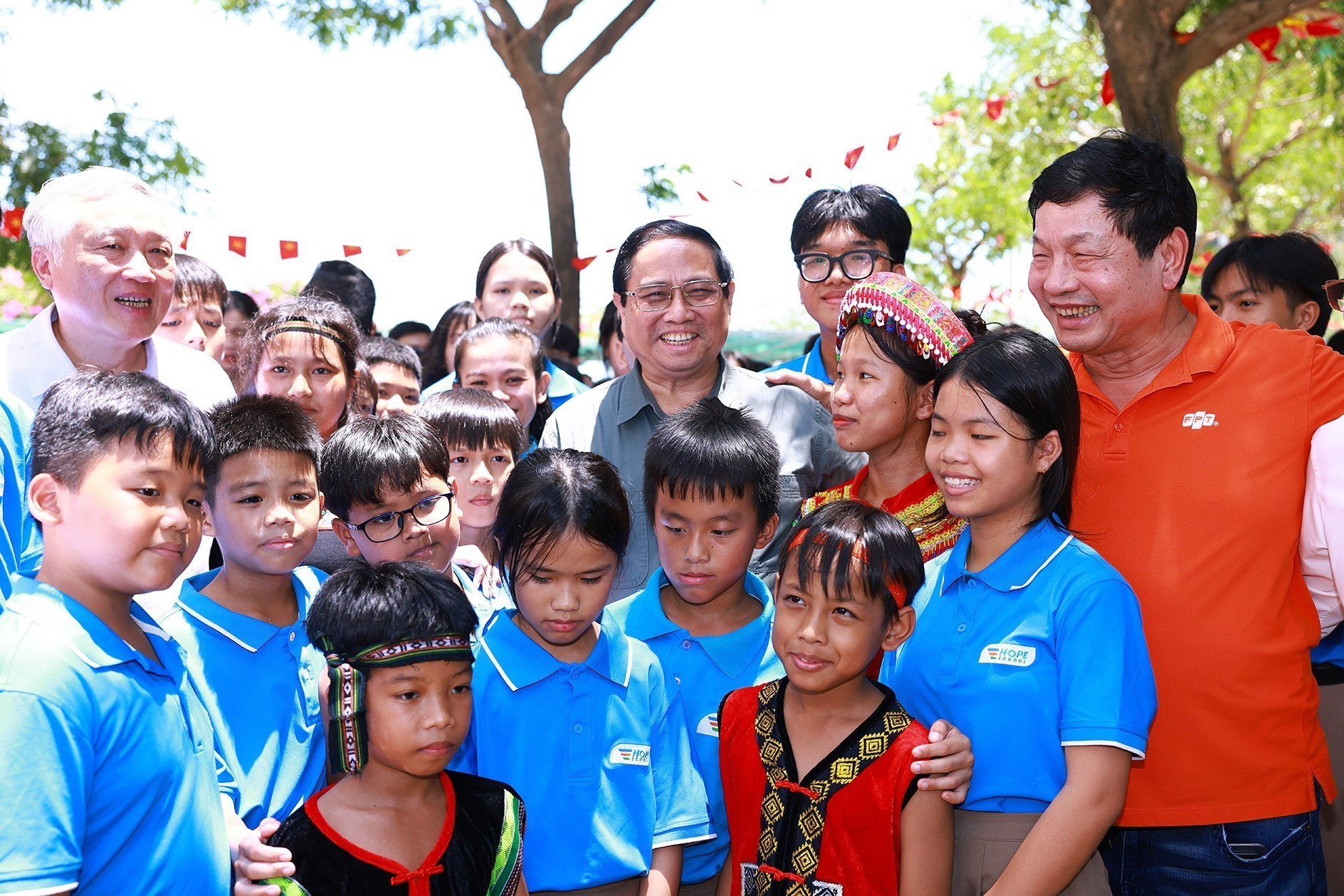
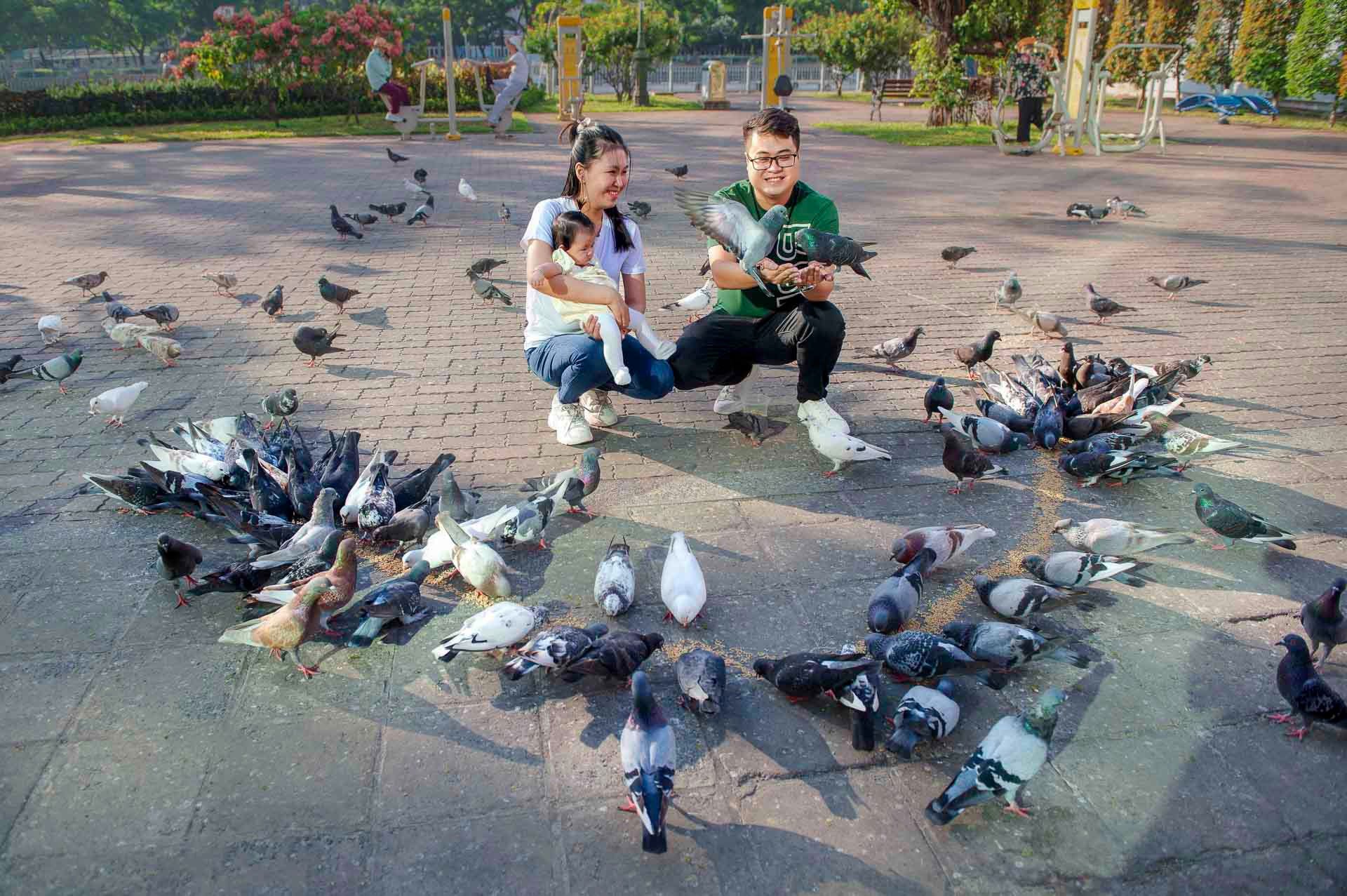




![[Photo] Prime Minister Pham Minh Chinh receives President of Cuba's Latin American News Agency](/_next/image?url=https%3A%2F%2Fvphoto.vietnam.vn%2Fthumb%2F1200x675%2Fvietnam%2Fresource%2FIMAGE%2F2025%2F12%2F01%2F1764569497815_dsc-2890-jpg.webp&w=3840&q=75)
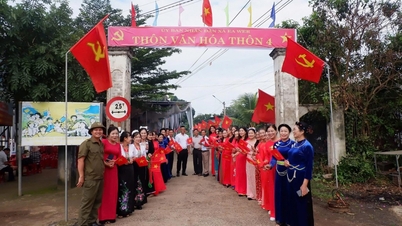

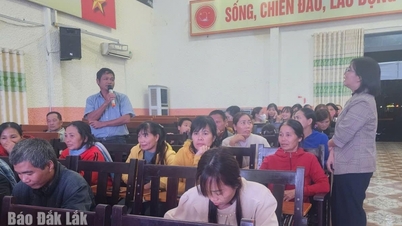
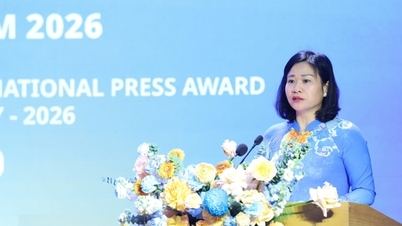

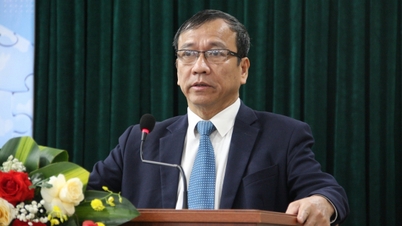

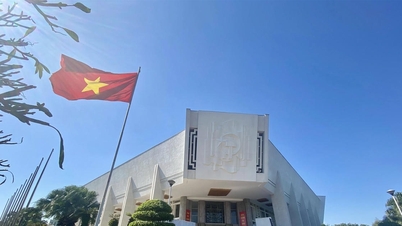

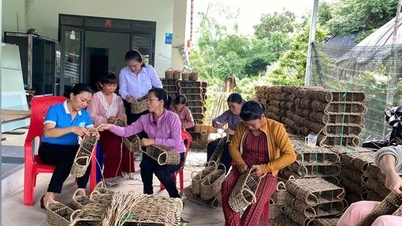

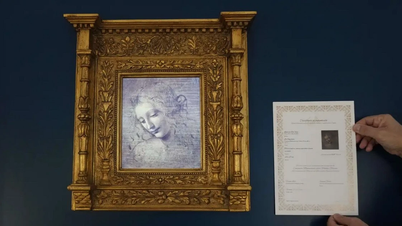

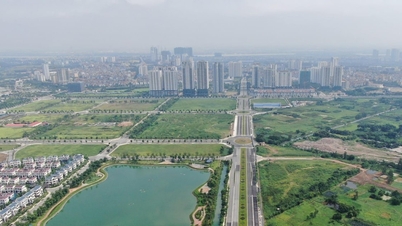

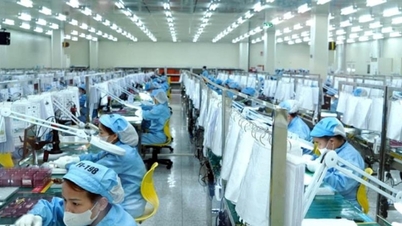
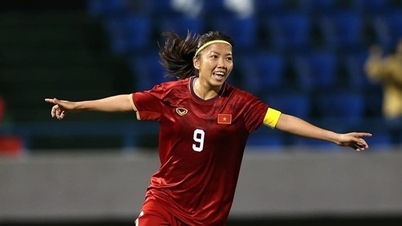

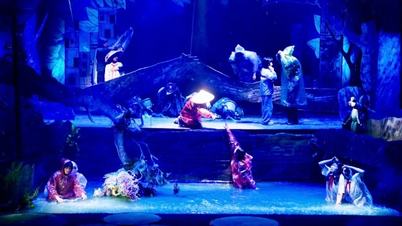

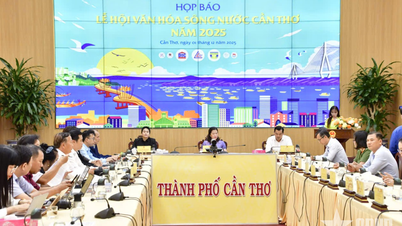






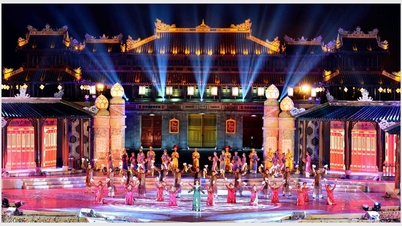
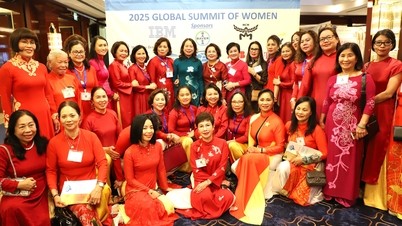
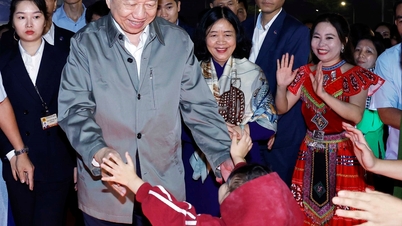
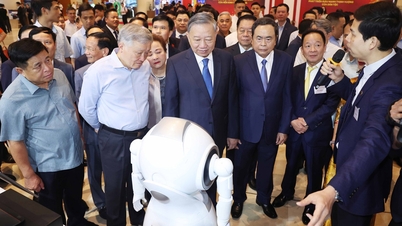



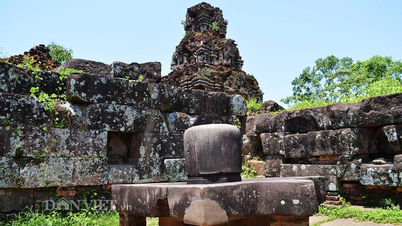

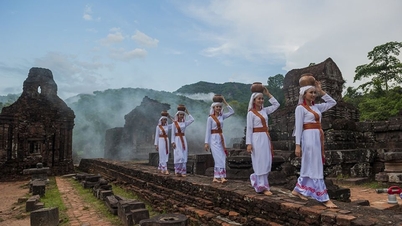

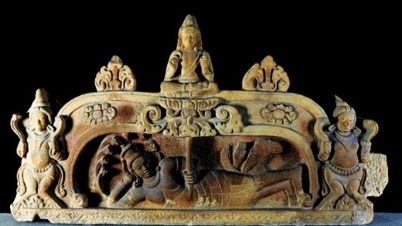
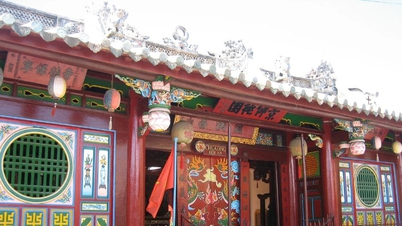
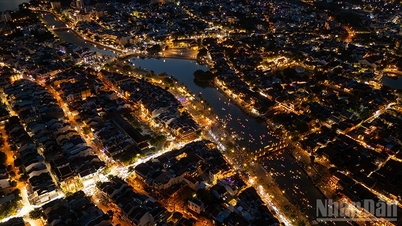
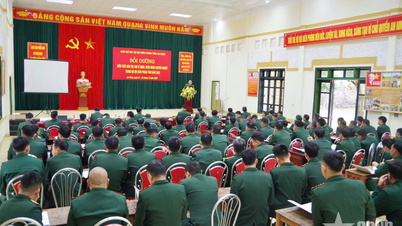
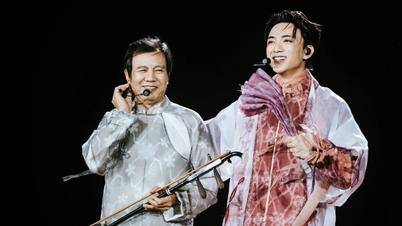

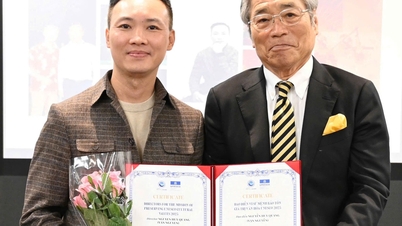

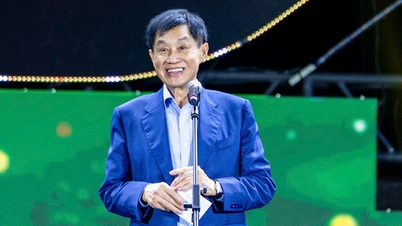

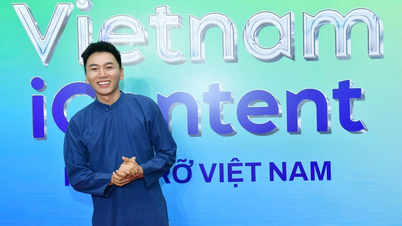

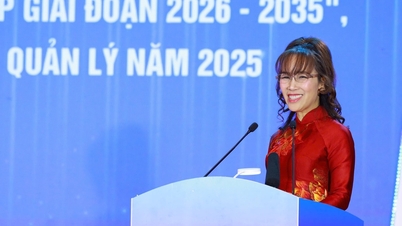

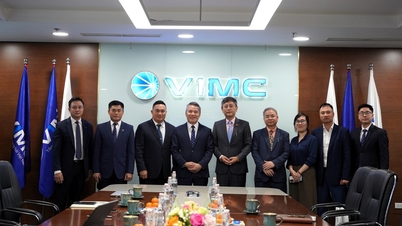


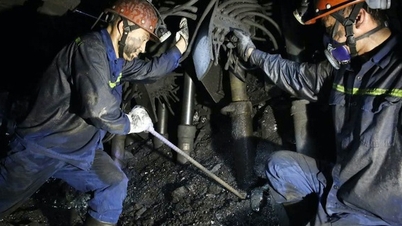

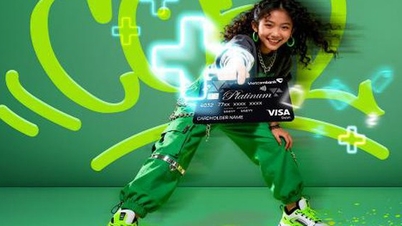
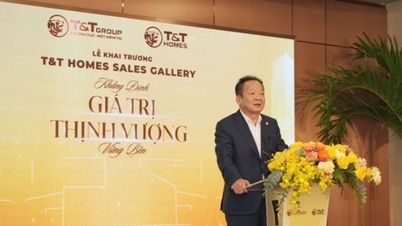







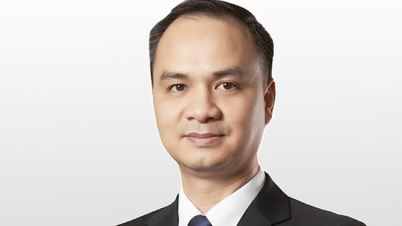


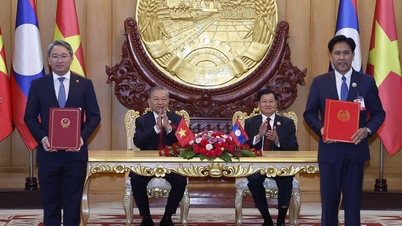
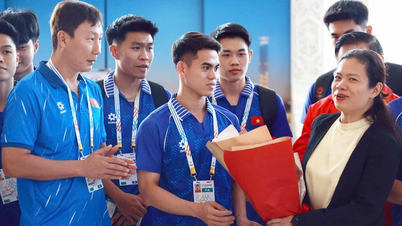
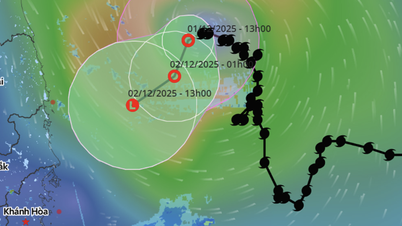
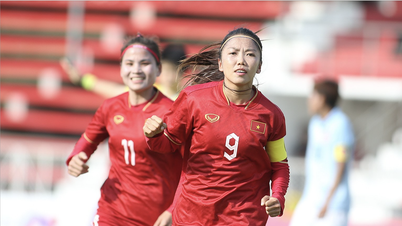
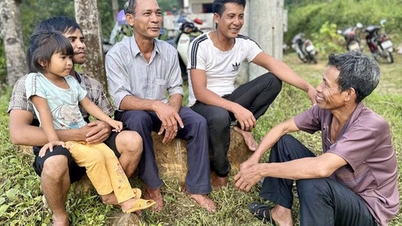

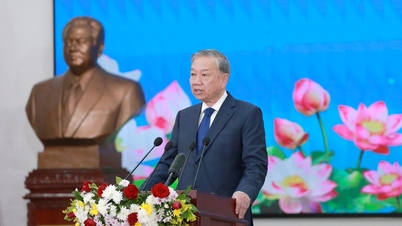

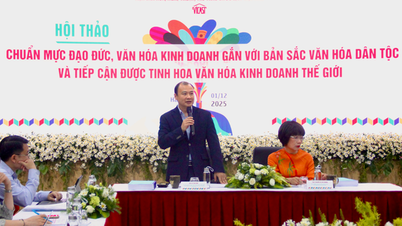
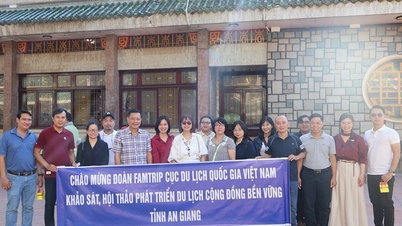
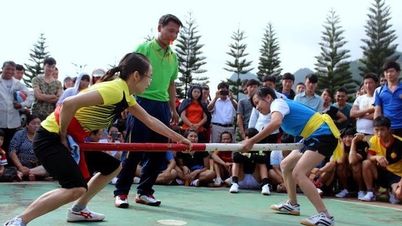
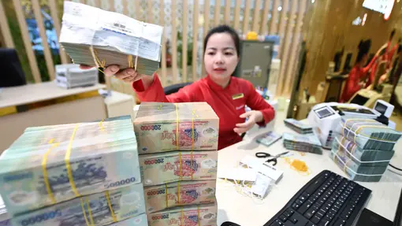
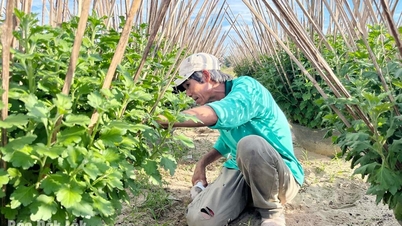
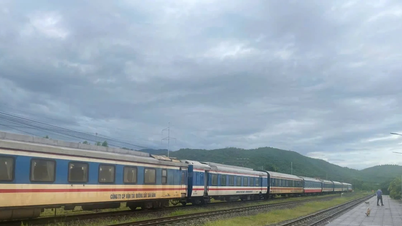

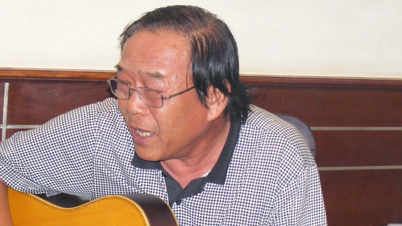
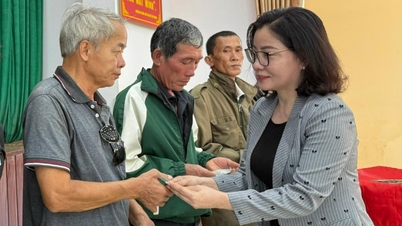
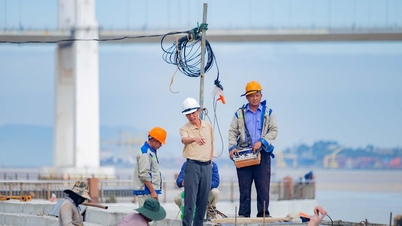










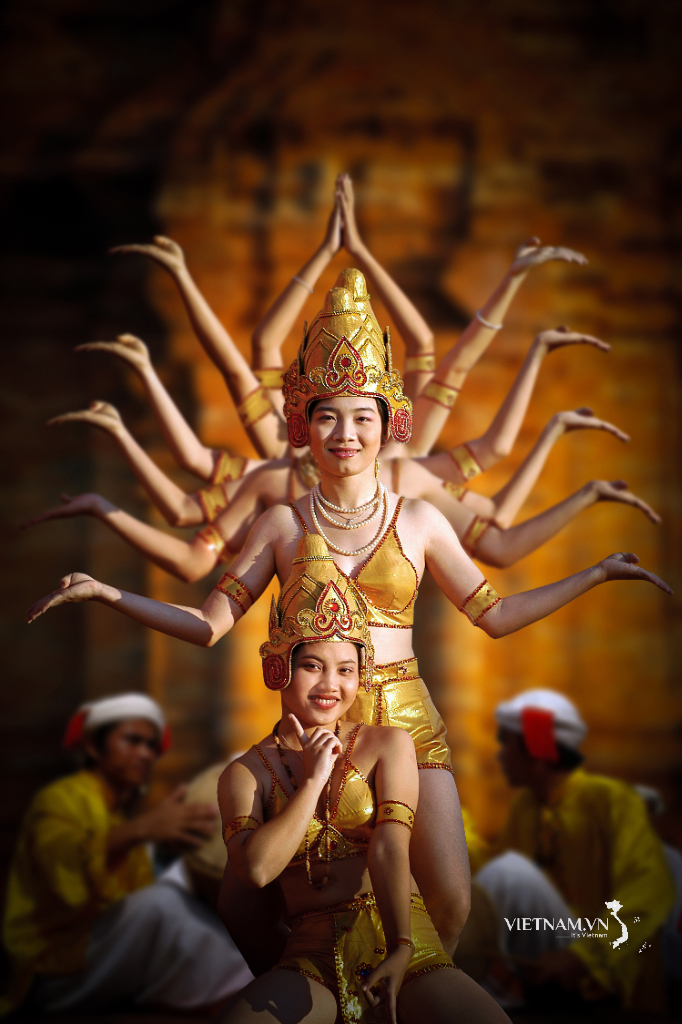


Comment (0)